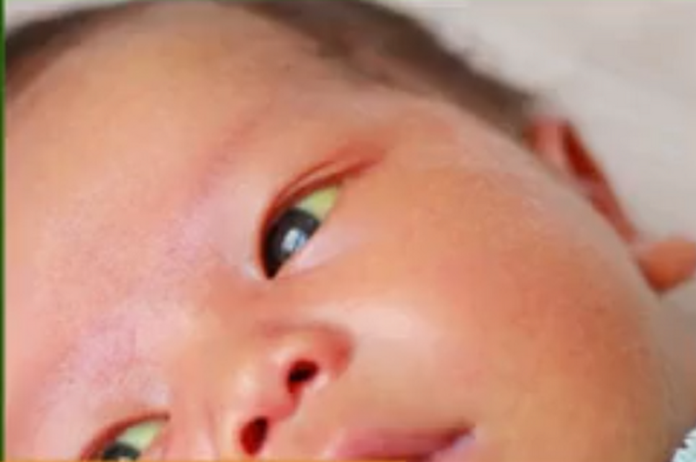The Paediatric Society of Ghana has advised parents to be on the lookout for neonatal jaundice in babies.
Keeping newborn babies indoors for up to seven days is common in Ghana.
A senior nursing officer and pediatric nurse at the Children’s Hospital, Sandra Mensah, has said neonatal jaundice is an infant health condition where the skin, eyes, legs, or hands of the baby turn yellowish.
The health condition happens to babies within 28 days of life.
The Children’s Hospital and other health facilities have seen a rise in cases recorded over the last three years.
Pediatric Society of Ghana and the Children’s Hospital have set the month of May as a jaundice awareness month.
A physician assistant and total quality manager of Princess Marie Louis Children’s Hospital, Samuel Asamoah, indicated that there was a need to create public awareness of the condition because of its adverse effects.
Speaking on Adom FM’s Nyinsen ne Awo) show, he said because of the low bed capacity in hospitals, mothers take their newborns home early without a nurse’s supervision to determine whether or not the child is jaundiced.
Parents with DCD food effect or partial effect (allergic to camphor) and a couple with negative and positive blood groups are advised to visit the hospitals often during and after pregnancy to ensure the safety of their babies.
According to the health workers, tests have to be carried out to determine what type of neonatal jaundice the baby has; pathological or physiological and prescribe the needed medication.
Prolonged neonatal jaundice can cause dumbness, immobility, and poor performance in academics as the condition weakens the brain.
ALSO READ:
Stop sunbathing babies with jaundice – Paediatric Society
Daylight helps to detect infant jaundice in new born babies – doctor
Exclusive breastfeeding for first six months essential – Midwife

